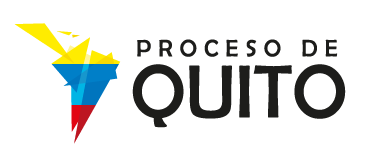Education
EDUCATION
With the support of:
In recent years, the substantial increase in intraregional displacement, the progressive transformation of the migrating population’s origin in this context, and the presence of massive migration flows have brought significant challenges for nations. Countries such as Argentina, Brazil, Chile, Ecuador, Colombia and Peru have become destinations for intra-regional migratory flows, particularly from Venezuela in the last few years.
The challenges are many, various of them related to the establishment of the ways in which refugees, migrants, asylum seekers and returnees can exercise their fundamental rights. Among these challenges is the right to education. In the context of social and health crisis, such as the one that the region is facing with the pandemic, the vulnerabilities inherent to cross-border displacement processes are deepening.
Within the multiple protection needs of Venezuelan refugees and migrants, education emerges as the tool capable of promoting and protecting human dignity, thanks to its ability to guarantee other rights and to become, therefore, a ‘multiplicative’ right.
The multiplying quality of the right to education is evidenced in how it becomes a key to access to social inclusion, as well as the opportunity to become full members in host societies. Likewise, it constitutes a factor that protects against right violations that accompany many processes of displacement, such as child labor, in the case of children and adolescents, or labor exploitation in the case of adults. However, this is only possible when the right to education is guaranteed in the political, legal and social systems.
Considering the principle of “leaving no one behind” of the 2030 Agenda, as well as the need to guarantee compliance with Sustainable Development Goal 4: “Guarantee inclusive, equitable and quality education, and promote learning opportunities throughout life for all,” UNESCO is implementing the UNESCO Regional Response Strategy to the situation of people in the context of mobility in Latin America and the Caribbean in 2019-2021.
In this strategy, UNESCO proposes to support the Ministries of Education to guarantee people’s right to education in the context of displacement, prioritizing the approach to obstacles related to access to education systems, to educational planning systems in contexts of displacement, the management of admission systems, the educational and social inclusion of people in these contexts and the recognition of studies and skills that may allow them to continue their studies and perform well within their respective occupational areas.
In the Joint Declaration of Chapter VI of the Quito Process, a call was made about the importance of education as an integrating role for migrant and refugee families, and for its relevance as a fundamental family right. The importance of the normative elements of connection between educational and migration policy was also stressed, and how these areas should work in synergy at the regional level.
AREAS OF WORK






